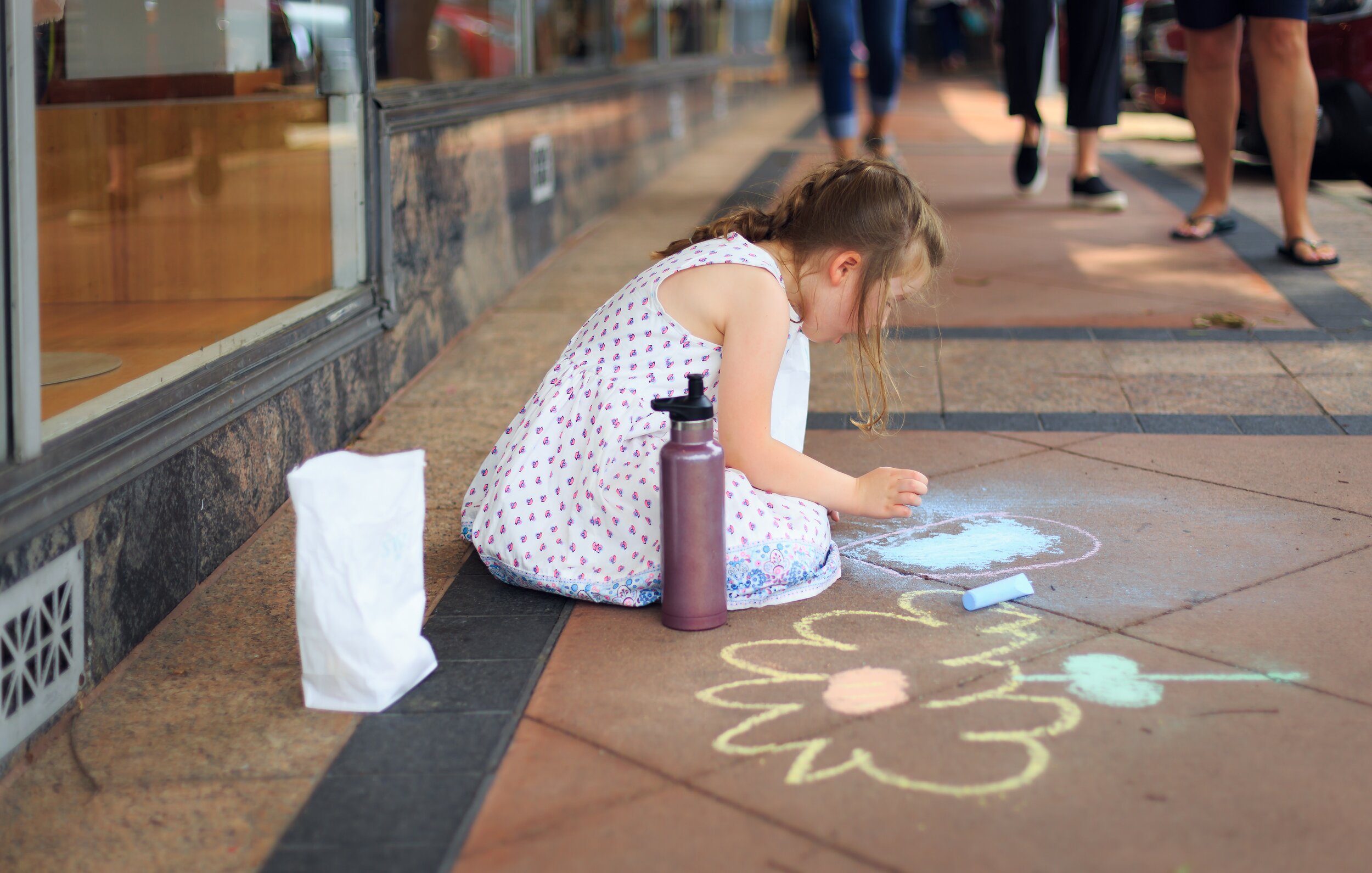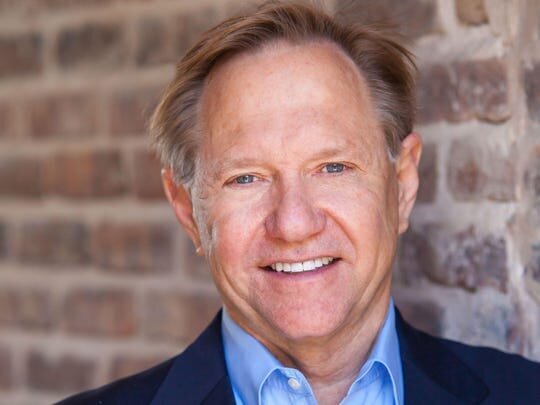Now Is the Time to Start Raising Up the Next Generation of Community Advocates
Image via Michael Morse on Pexels.
Strong Towns members and readers care deeply about the future. We’re passionate about building economically sound communities that grow in smart, self-sustaining ways and serve the needs of citizens. We value communities with a strong sense of place that attract, excite, and engage people. We know that to thrive long-term, we must create places people want to be—diverse, inclusive, vibrant places that invite us to connect with each other in real ways.
Over these last few completely unprecedented months, I’ve spent a lot of time thinking about the legacy we’re leaving our kids. They will inherit our communities. They will finish the work we’ve started (which typically unfolds over the course of years, if not decades). Hopefully, they’ll solve many problems and make our towns and cities stronger and better than they were before.
But to create positive change, they must first learn what right looks like: economically, socially, and culturally. It’s up to us to teach them. That means as communities—and more important, as individual families—we need to invest in civic education. We are not born knowing this stuff.
This is why we have created the Civic-Minded Family Series. It’s a spin-off of CivicCon (short for “Civic Conversations”), Pensacola, Florida’s speaker series designed to improve civic IQ for citizens. CivicCon brings in some of the nation’s top thinkers and experts to educate people on issues they need to know in order to lay the groundwork for change inside the community.
So, what we’ve done is pull together some of the most kid-friendly lectures in the series. Most of them are available in video and podcast format. With kids out of school and many of us taking long road trips, summer is a great time to expose kids to the building blocks that create strong towns and vibrant communities. They’re fun to listen to as a family.
(Several people have mentioned to me that they’re worried about their kids losing ground during the “virtual education months” this spring. I tell them there’s a lot they can teach at home. Civic education is a wonderful place to start!)
Here are a few Civic-Minded Family lectures you and your kids might enjoy:
Chuck Marohn: What Makes America’s Strongest Towns Stand Out?
Chuck Marohn is the founder and president of Strong Towns, host of the Strong Towns Podcast, and the author of several books, including Strong Towns: A Bottom-Up Revolution to Rebuild American Prosperity. He will change the way you think about growth and development and talk about the ways we can make the lowest-cost, highest-returning investments in our community.
Website: www.strongtowns.org
Event video: watch here
Podcast: listen here
Andrew Davis: Leveraging What’s Special About Your Community
After studying what makes American towns boom or go bust, Andrew Davis has found that most thriving communities have “staked a claim” by making themselves synonymous with a particular industry or lifestyle (e.g., Napa Valley immediately calls wine to mind, and Nashville is the home of country music). He identifies steps communities can take to focus their branding, create location envy, and attract more businesses.
Website: www.akadrewdavis.com
Event video: watch here
Podcast: listen here
Charles Montgomery: Create a Happy City by Connecting People
Having spent roughly a decade doing research and urban experiments for his book Happy City: Transforming Our Lives Through Urban Design, award-winning author and urbanist Charles Montgomery says simple human connection is the key to making people—and cities—happier. Learn how government officials, developers, and urban planners can create environments that boost citizens’ social connection, community engagement, health, and general well-being.
Website: www.thehappycity.com
Event video: watch here
Podcast: listen here
James Fallows: What Successful Communities Are Doing Right
James Fallows served as former President Jimmy Carter’s chief speech writer and is an award-winning author and a decades-long correspondent for The Atlantic. He spent years traveling the country in a single-engine prop plane. He says even though many Americans are worried about the direction of the country, local communities are getting things done: finding money to innovate their schools, investing in businesses and policies to revitalize their downtowns, and building better places for people of all different experiences and backgrounds.
Website: www.ourtownsbook.com
Event video: watch here
Jeff Speck: How to Create a Walkable City
Jeff Speck is a city planner, urban designer, creator of the Governors’ Institute on Community Design, and former director of design at the National Endowment for the Arts. He advocates internationally for more walkable cities and argues that cities function best as a collection of small neighborhoods, each with their own places to live, work, shop, worship, and go to school.
Website: www.jeffspeck.com
Event video: watch here
Podcast: listen here
Peter Kageyama: Does Your City Grab You by the Heart?
Peter Kageyama is the author of For the Love of Cities: The Love Affair Between People and Their Places and Love Where You Live: Creating Emotionally Engaging Places. The senior fellow with the Alliance for Innovation inspires the audience with his passionate stories of how grassroots community change has made life better and happier for people in cities across the country. His examples are simple and achievable, and in fact, inspired a local Chalk Art Festival in downtown Pensacola less than three months later.
Website: www.fortheloveofcities.com
Event video: watch here
Podcast: listen here
Lysistrata “Lyssa” Hall: Great Cities Have Great Urban Trees
Lysistrata “Lyssa” Hall is the founder of Cloud Hall Creative Solutions in Phoenix, Arizona, and she has worked with many communities on tree ordinances and tree plans. She was instrumental as a planner and arborist in the green infrastructure around the light rail corridor in Phoenix. Here, she shares the importance of urban forests and strategies for growing them.
Event video: watch here
As your kids learn the basic principles of building great communities, you’ll have some fun discussions. It’s neat when they start pointing out examples of urban sprawl, or show you a big parking lot that could be put to better use, or comment on how walkable a downtown is with all of its shade trees. Learning this stuff together is a fulfilling experience for everyone.
One thing I’ve observed during this pandemic is that kids are incredibly smart and resilient. (In many ways, they are holding up under the strain better than adults.) They love to learn, and they have the mindset and the optimism to create positive change.
A more civic-minded country is built one community at a time, one family at a time, and one young person at a time. Let’s teach them the skills they need to know to create a better, stronger, happier future for all of us. And let’s start now.
Cover image via Michael Morse on Pexels.
About the Author
Quint Studer is author of Building a Vibrant Community: How Citizen-Powered Change Is Reshaping America and Wall Street Journal bestseller The Busy Leader’s Handbook: How to Lead People and Places That Thrive. He is founder of Pensacola’s Studer Community Institute, a nonprofit organization focused on improving the community’s quality of life, and Vibrant Community Partners, which coaches communities in building out a blueprint for achieving growth and excellence. Quint speaks and works with communities across the country, helping them execute on their strategic plans, create a better quality of life, and attract and retain talent and investment. He is a businessman, a visionary, an entrepreneur, and a mentor to many. He currently serves as Entrepreneur-in-Residence at the University of West Florida, Executive-in-Residence at George Washington University, and Lecturer at Cornell University.
For more information, please visit www.thebusyleadershandbook.com, www.vibrantcommunityblueprint.com, and www.studeri.org.


